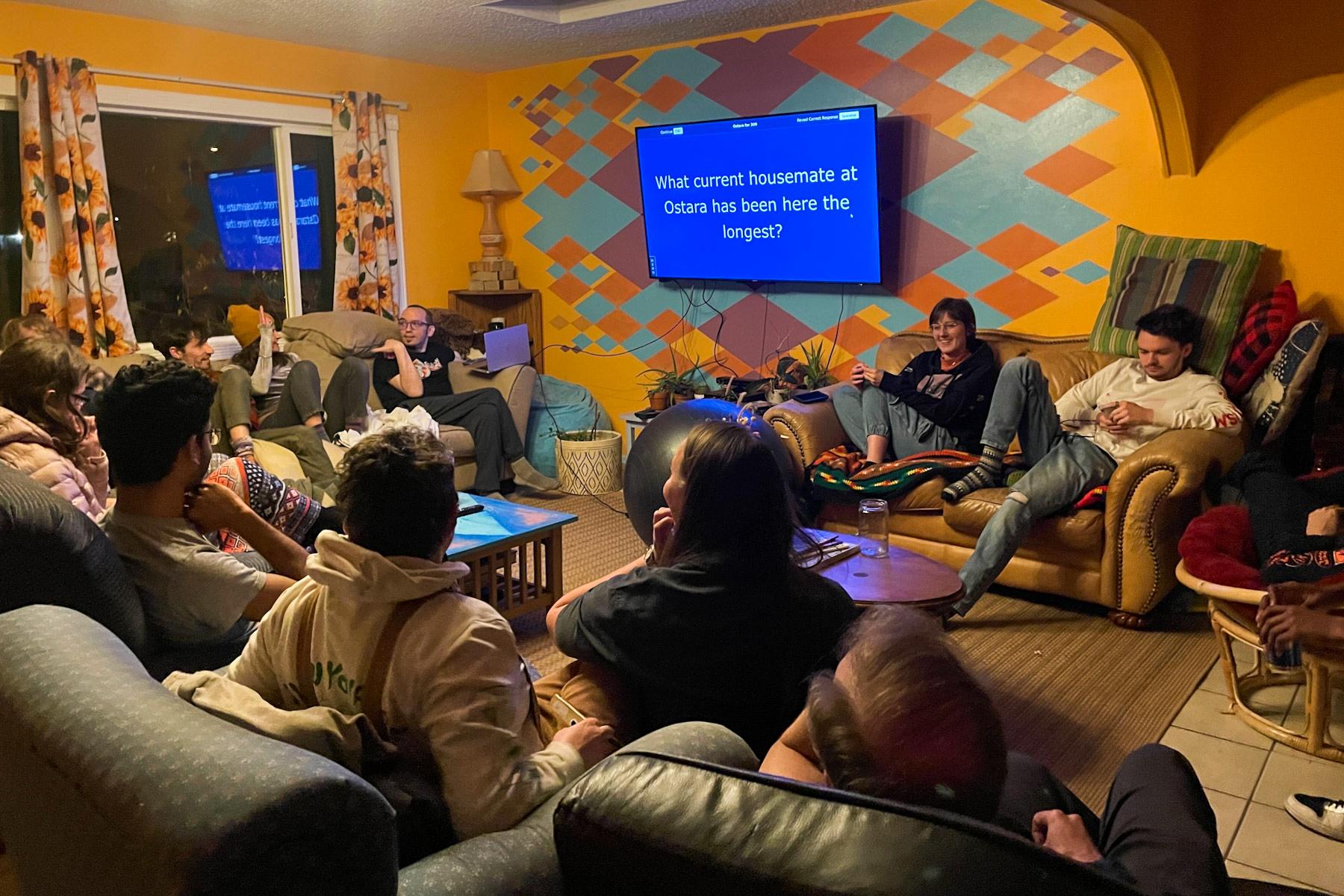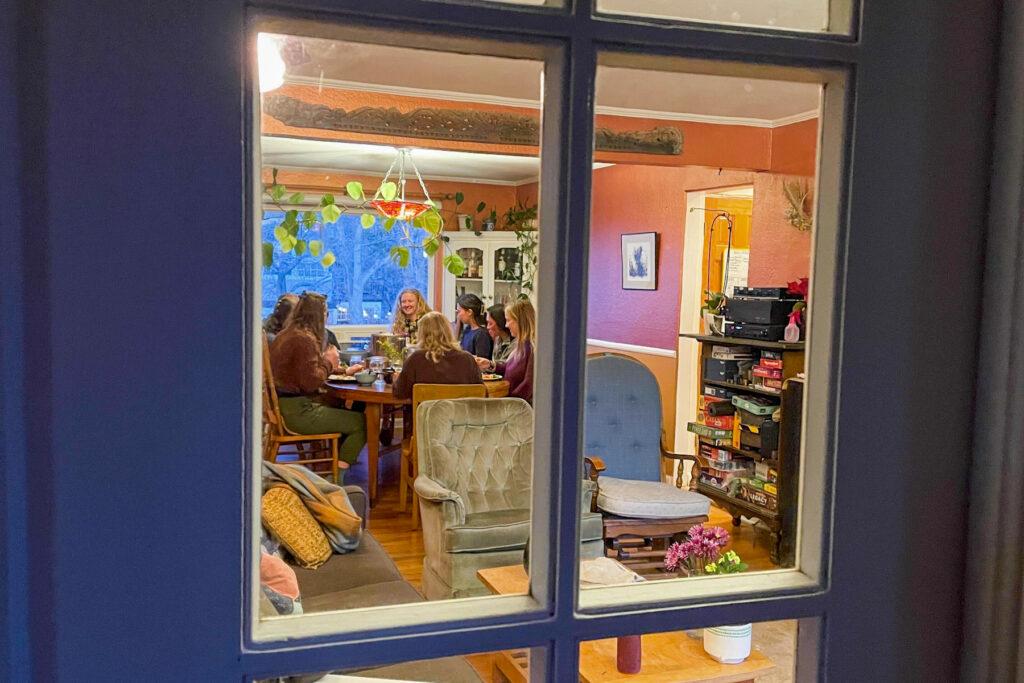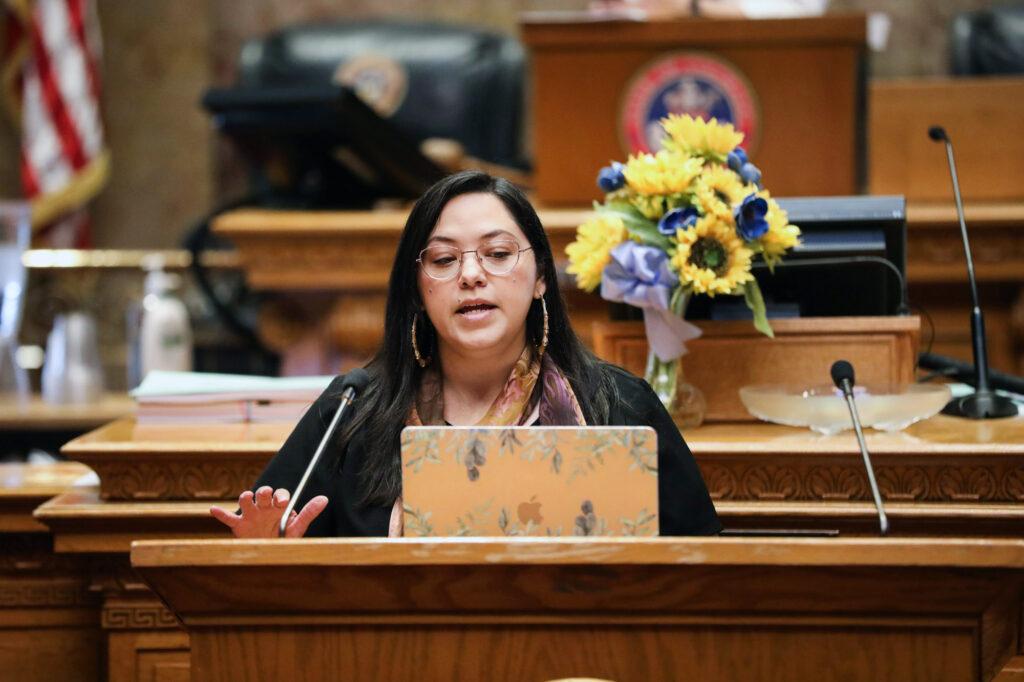
Updated Monday April 15, 2024 at 4:14 p.m.
Gov. Jared Polis signed an occupancy limits ban into law Monday.
With its signing, Colorado's local governments can no longer set an across-the-board cap on how many unrelated people can live together. Instead, they'll have to justify any restriction, such as for health or fire safety concerns, before they enact a roommate limit.
Our Original story continues below.
Larger numbers of unrelated roommates could legally share homes in cities like Boulder and Fort Collins under a law progressing through the state legislature.
Currently, dozens of cities in Colorado have “occupancy limits” that dictate how many unrelated people can live together. In Fort Collins, it’s a maximum of three people who aren’t family members. In Boulder, depending on where you live, it’s five. The proposal at the statehouse would strike down or force changes to those local laws.
This year’s measure, HB24-1007, has passed crucial votes in the Senate and House.
Sen. Julie Gonzales, a Democratic sponsor of the measure, listed people the bill could help.
“Two single parents, coming together and raising their kids on their own. I’ve talked to people who live with their caretakers. We heard testimony from students who are trying to make ends meet, going together on an apartment. That’s what this bill’s about,” Gonzales said.
She and other supporters argue that occupancy limits are unfair and arbitrary, except for public safety purposes. Sharing a house or apartment with multiple roommates can help people afford housing near their work or school, they said. And countless people are already sharing housing, whether or not it’s legally allowed in their city.
But the bill has faced the same criticism as other recent housing reforms: Opponents from both parties have argued that it will erode local control — the ability of cities to set their own laws and policies — to the detriment of current residents.
Occupancy limits can be especially contentious in college towns, where long-term residents see them as a protection from houses crowded with student renters. In Boulder, where more than 33,000 students attend CU Boulder, voters rejected the idea of abolishing occupancy limits in 2021 in a 52-48 vote.
“The state’s going to control our property rights. Doesn’t that bother you? It should. It really should,” said Sen. Joann Ginal, a Democrat from Fort Collins. She argued that “large investment companies” would swoop in to buy up single-family properties and start renting them to large groups of tenants.
“Neighborhoods are just going to go downhill,” she added.
Jon Goldman of the Daniels Welchester Neighborhood Association in Jefferson County said an over-occupied home had ruined a cul-de-sac in his neighborhood, leading other families to move out.
The home “has seven mailboxes displaying 20 names, and the county says there is nothing that can do,” he told lawmakers.

In contrast, cooperatives like Mango Manor in Boulder have tried to show the power of living together.
“It's a hard daily pill to swallow, seeing the incongruency of high housing need alongside so much empty space,” said Alexis Hermes, a caregiver for adults with dementia and Alzheimer’s in Boulder. “I finally found a cooperative home that offers affordable housing, a car share system, access to public transportation, and shared labor and communication structures.”
Hermes said moving in with a dozen people was scary at first but the "change has saved" her.
University students also testified in favor of the bill. Jorja Whyte, a third-year student at Colorado State University, said Fort Collins’ “U plus two” laws had made the competition for rentals even more intense — guaranteeing she would move on after graduation.
“I simply can't afford to live there with the rising housing costs without more than two roommates,” she said.
It’s hard to say just how much will change if the bill passes. It could affect the laws of some two dozen cities across Colorado, according to the Colorado Municipal League.
In Boulder, the city has received about 150 complaints related to occupancy limits over five years, and just over half resulted in findings of violations.
Under the new bill, cities would still be allowed to set occupancy limits based on “demonstrated health and safety standards such as international building code standards, fire code regulations, or Colorado Department of Public Health and Environment wastewater and water quality standards.”
The measure is part of a much bigger debate over individual and communal rights.
Land-use reformers, including many Democrats, argue they are supporting individuals’ property rights by removing regulations. The government, they argue, shouldn’t set arbitrary limits on an individual’s use of their property.
Republicans and other opponents, on the other hand, say that property rights aren’t just about one’s own parcel of land. Cities and neighborhoods should have the right to set standards, they say, even if it limits the actions of individuals.
Senate Minority Leader Paul Lundeen said that opponents rightly want “privacy — the right to be left alone. They just want the quiet enjoyment of their life as it was before the state said, ‘No, I got a better idea, I’m going to put a bunch of people in a limited amount of space, next to you. Hope your life doesn’t suck too much.’”

Gonzales compared residency limits to redlining, the historic practice of effectively segregating neighborhoods by making it impossible for Black and Latino families to get mortgages.
“There used to be a time when redlining was used as a mechanism to justify excluding people who look like me,” she said. “Now it’s done in the name of local control.”
The measure awaits a final vote in the Senate. If it passes, it will have to return to the House for lawmakers to consider the amendments made by the Senate. Gov. Jared Polis strongly supports the measure.
“Governor Polis called for the legislature to end discriminatory occupancy limits in his State of the State address and applauds the bill sponsors for their work to bring this bill to his desk,” wrote spokesperson Shelby Wieman in an email. “Governor Polis looks forward to getting the government out of the business of telling who you can and can’t live with.”
The bill is cosponsored by Rep. Manny Rutinel, Rep. Javier Mabrey, and Sen. Tony Exum, all Democrats.









